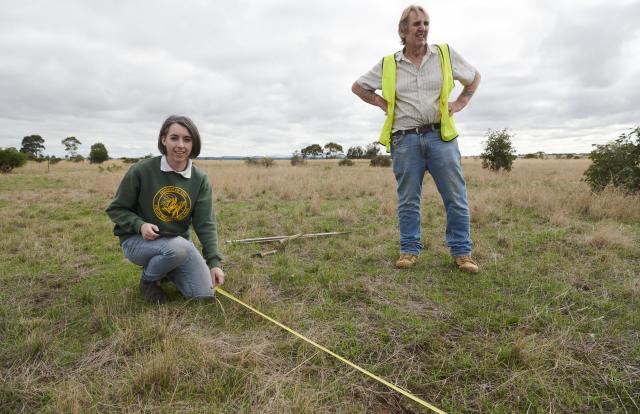Loretta Beliniak has always been a river person.
Born in Corowa on the Murray, she moved to Sunbury when she was 10 years old.
Her childhood home, not far from the confluence of Blind and Jacksons Creeks, was her base for creek adventures, including playing in the creek, climbing trees, rafting and canoeing.
Twice a day she crossed Blind Creek on her school journey.
“The creek has always been part of my life”, she said, “my playground … it was formative”.
Perhaps it is no surprise that she finds herself now Convenor of the Friends of the Organ Pipes National Park.
“I moved back from Western Australia in 2018 and saw a join us invitation on a noticeboard at the park. Becoming convenor happened very quickly.”
Set in the valley formed by Jacksons Creek, the Organ Pipes is the closest National Park to Melbourne and an amazing example of landscape rehabilitation.
After early overgrazing by settlers, the park was largely denuded and 90 per cent noxious weeds.
Now, thanks to the efforts of parks staff but particularly volunteers, it has been substantially revegetated.
It is a haven for kangaroos, swamp wallabies, echidnas, sugar gliders, platypus, frogs and raptors.
Loretta helps to organise monthly working bees, social media and in 2022, the group’s 50th year anniversary. The friends group is the main weed manager.
Prickly pear, boxthorn and artichoke thistle keep invading the park, stretching volunteer resources. Not to mention feral goats.
The task can seem overwhelming but Loretta keeps her perspective by looking back at old photos of the park, when there “weren’t any trees in the valley and it was covered in boxthorn and artichoke thistle.
“We’ve done a really great job and volunteers have always been there to do all this work.”
It’s not all about maintenance though. Loretta and her friends group have a vision for improvements to the park they love.
“Our next project is bringing back grasslands along the Calder. The stretch from the Organ Pipes Road to Kings Road (Sydenham Park).”
Down in Jacksons Creek, the 2022 floods were both amazing and destructive.
“I’ve never seen so much water charging through there,” Loretta said.
That water affected her in another way, when her workplace in Kensington on the banks of the Maribyrnong River was inundated.
“We had a metre of water go through the entire place.”
Out of action for seven weeks, there was widespread alarm at the prospect of a national shortage of their main product, the dim sim.
Sometimes a source of joy, sometimes threatening and destructive. Creeks and rivers will continue to course through Loretta’s life.







